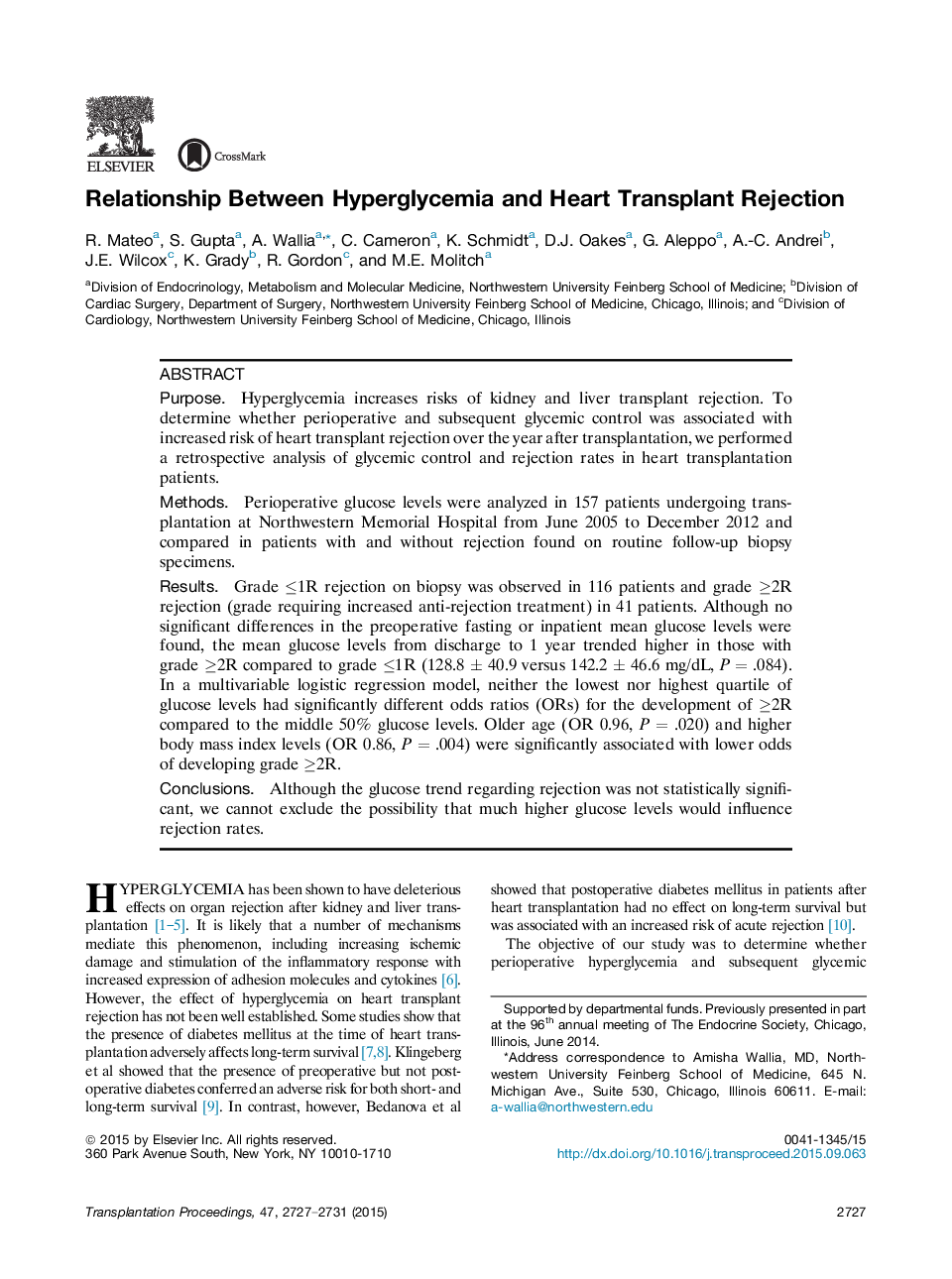| کد مقاله | کد نشریه | سال انتشار | مقاله انگلیسی | نسخه تمام متن |
|---|---|---|---|---|
| 4255921 | 1284505 | 2015 | 5 صفحه PDF | دانلود رایگان |
• Hyperglycemia has been previously associated with increased risks for rejection.
• Over 1 year, grade ≥2R rejection found on biopsy in 41 of 157 heart transplant patients.
• Glucose levels from discharge to 1 year trended higher in those with grade ≥2R.
• Older age and higher body mass index levels associated with lower odds of grade ≥2R rejection.
• Cannot exclude possibility that higher glucose levels would influence rejection.
PurposeHyperglycemia increases risks of kidney and liver transplant rejection. To determine whether perioperative and subsequent glycemic control was associated with increased risk of heart transplant rejection over the year after transplantation, we performed a retrospective analysis of glycemic control and rejection rates in heart transplantation patients.MethodsPerioperative glucose levels were analyzed in 157 patients undergoing transplantation at Northwestern Memorial Hospital from June 2005 to December 2012 and compared in patients with and without rejection found on routine follow-up biopsy specimens.ResultsGrade ≤1R rejection on biopsy was observed in 116 patients and grade ≥2R rejection (grade requiring increased anti-rejection treatment) in 41 patients. Although no significant differences in the preoperative fasting or inpatient mean glucose levels were found, the mean glucose levels from discharge to 1 year trended higher in those with grade ≥2R compared to grade ≤1R (128.8 ± 40.9 versus 142.2 ± 46.6 mg/dL, P = .084). In a multivariable logistic regression model, neither the lowest nor highest quartile of glucose levels had significantly different odds ratios (ORs) for the development of ≥2R compared to the middle 50% glucose levels. Older age (OR 0.96, P = .020) and higher body mass index levels (OR 0.86, P = .004) were significantly associated with lower odds of developing grade ≥2R.ConclusionsAlthough the glucose trend regarding rejection was not statistically significant, we cannot exclude the possibility that much higher glucose levels would influence rejection rates.
Journal: Transplantation Proceedings - Volume 47, Issue 9, November 2015, Pages 2727–2731
